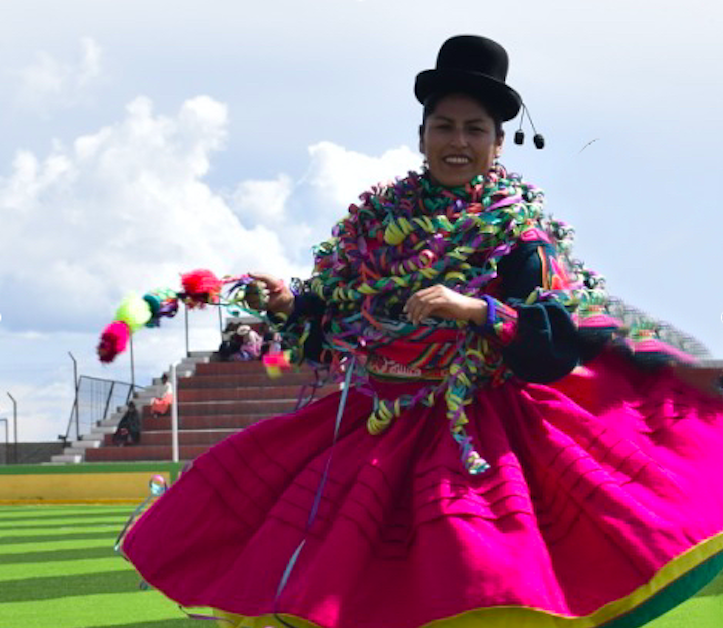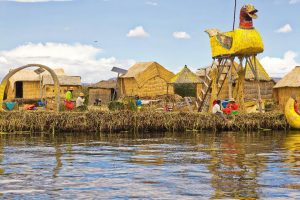Ana María Yupanqui is one of the few female mayors in Peru, the first in the history of its municipality, Pomata, in Puno, whose lake represents one of the most important water basins in South America. One of the main challenges it faces is the contamination of Lake Titicaca, one of the natural wonders of the world, which is putting the health of the population and the ecosystem at risk.

In the picture, Ana María Yupanqui
Ana María Yupanqui did not have it easy. Belonging to the Aymara ethnic group, which she considers to be “extremely patriarchal”, she was one of the few girls who managed to finish high school and study outside her municipality to graduate in accountancy in Puno. “I wanted to do something for my community, and although in principle not even my family supported me, I was sure that I could achieve it, even if I was a woman and a young one at that”, said the mayor of Pomata, a town of around 20,000 inhabitants whose lake represents one of its main sources of income.
At 33 years old, she is one of the 19 women who risen to the position of mayor in Peru, the first in Pomata’s history. She believes that she won the elections because people, tired of problems to do with corruption, chose to give a woman the opportunity to provide a different type of leadership. “There are leaders who do not accept being governed by a woman. But the people have put their trust in us and I cannot disappoint as a woman, because I can serve as an example for others in the years thereafter”, she said.
“We have many problems, our population lives entirely off agriculture, livestock and fishing, and gender-based violence has a very significant impact on the lives of our women. Pollution in the lake is also a crucial issue”, explained Yupanqui.
Lake Titicaca runs along a 1,126 kilometre-long basin, between Bolivia and Peru. In Peru, the area surrounding the lake is the most important geo-economic region in the southern-Peruvian Andes, with more than one million people living in the Peruvian part alone.
“Many people live off trout farming, which is their main source of income. The lake also waters our crops. A source of income is coming to an end, contaminating our food and seriously affecting the health of our population”, she said.
The sacred lake of the Incas has become a sewer of polluted waters from the drains of 23 Peruvian and Bolivian cities that are located around the bay of Puno. The other source of contamination comes from the gold mines located “upstream” where thousands of informal miners use several tons of mercury each year to purify the gold metal and whose toxic residues reach the lake by river.

“Most of the towns do not have sewage processing plants or solid waste collection systems. Peru and Bolivia definitely have to work in a coordinated fashion because the lake links our two countries. It is a job that we have to do for the good of our people”, she concluded.
The European Union’s EUROsociAL+ programme is working to improve the governance of Lake Titicaca and to tackle the main environmental and social challenges of its population, the majority of which are Aymara and Quechua indigenous communities that live at an altitude of 4,200 metres, with minimal state presence, high rates of poverty and marginalisation. Specifically, the EUROsociAL+ programme Democratic Governance, managed by FIIAPP through its Territorial Development line, has accompanied the Binational Autonomous Authority of Lake Titicaca (ALT) in the implementation of a strategy for coordination between the different levels of government that also incorporates other non-institutional actors. The ALT has learnt from European experiences regarding the better management of water resources and sanitation projects that reduce inequality, vulnerabilities and social exclusion.
Inside photo: Jeison Higuita



